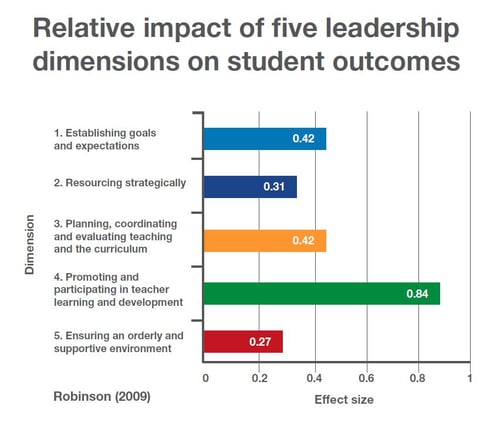UK teachers rank second to last in OECD league tables of teacher longevity in the classroom. Only 48% of teachers have more than 10 years in the profession, but, regardless of Damian Hinds comments at the annual ASCL conference 2018, workload is not necessarily the primary factor for so many leaving, according to research.

The DfE’s recent reinterpretation of a TALIS survey shows it’s lack of access to high-quality continuing professional development, along with leadership and teacher-efficacy that are damaging retention in our schools.
But, that’s not to say that workload isn’t impacted by a lack of retention. Departures mean higher workloads for those teachers who remain, as well as TAs and admin staff, and increasingly, when support from more experienced colleagues is required, there is a void in middle and senior leadership.
What does the research say?
The research shows that higher levels of effective professional development and scope for progression are associated with a reduced desire for teachers to leave schools.
“More specifically, a one standard deviation (SD) improvement in effective professional development is associated with a large, 63% reduction in the odds that a teacher wants to move to another school… Scope for progression is shown to have a strong, statistically significant relationship with both satisfaction and retention, with a one SD increase being
associated with a 0.23 increase in satisfaction and a 44% reduction in desire to move schools.” - Extract from DfE report
Research also shows that it is the quality of CPD, rather than the quantity, that matters most. This is backed up further by research from Robinson (2009).

Quantity vs quality
Often it is not the quantity of work but the nature of the work which stems from a system/culture where teachers are no longer trusted to make their own decisions. Teachers find themselves in a climate of high stakes accountability which can stifle autonomy, individuality and creativity, and leads to a feeling of dis-empowerment.
“In schools where teachers are reporting much higher levels of support, much more professional development and greater levels of trust, they find that teachers not only improve more rapidly in the first couple of years, they continue to improve. On average, in those schools, teachers are helping pupils more each year than they did the previous year.”
- David Weston, Chair of the DfE and Chief Executive of the Teacher Development Trust
What is effective CPD?
Two decades of research by Joyce and Showers has identified a framework for more effective career-long professional learning. It demonstrates the importance and impact of the following professional learning activities:
- Access to theory, information and ideas
- Observation of others being successful
- The opportunity to have a go, practice and receive low risk feedback
- Coaching and job-embedded enquiry
All of the above activities are necessary, but done in isolation they are insufficient. For example, coaching will not be effective if the teacher doesn’t have a good grasp of the theory behind the strategy they wish to embed in their practice. So, ensuring that teachers are supported with the full spectrum of professional learning activities is key for effective CPD and therefore teacher retention.
Want to know what else is contributing to the retention crisis and practical steps you can take to improve retention in your school? Download our free guide to increasing teacher retention >



Leave a comment:
Get blog notifications
Keep up to date with our latest professional learning blogs.